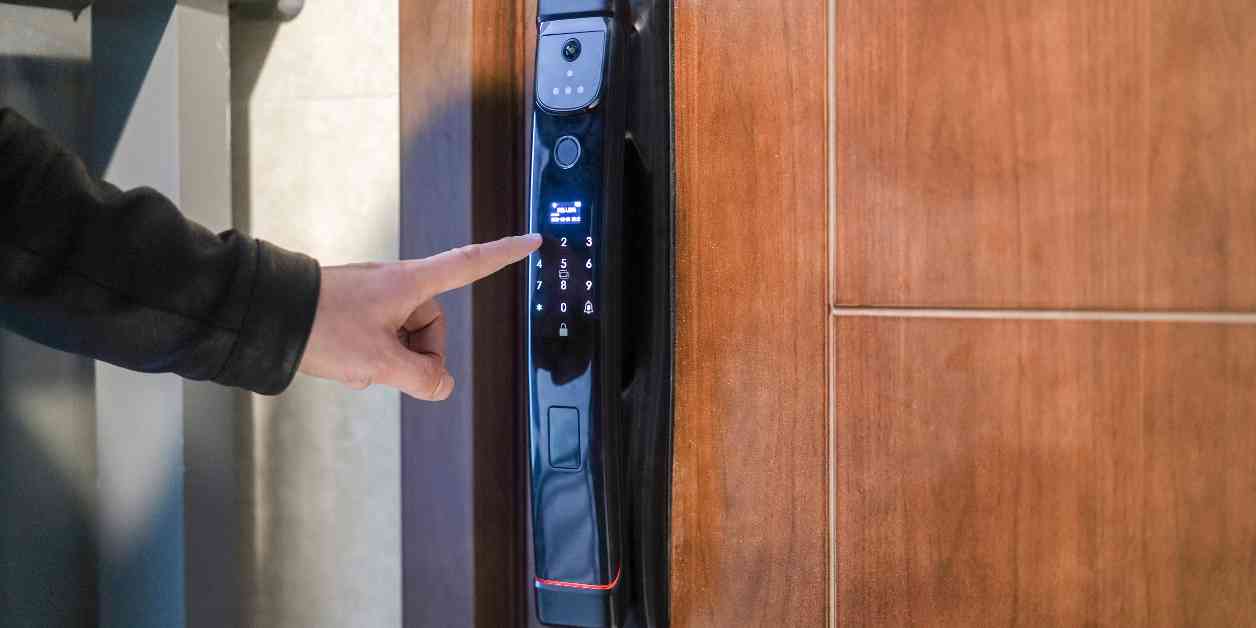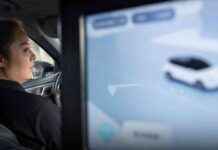Smart Locks: Balancing Privacy Concerns and Home Security
The rise of smart home technology has brought convenience and security to many households around the world. From smart thermostats to voice-activated assistants, these devices offer a new level of control and connectivity for homeowners. However, one area where controversy and privacy concerns have emerged is with smart locks, particularly those equipped with cameras.
Wang Hao, a resident of Beijing, installed a smart door lock with a camera in his apartment in an effort to enhance the security of his home. Little did he know that this decision would lead to a legal battle with his neighbor, Jiang Yi. Jiang filed a lawsuit against Wang, claiming that the camera on the smart lock infringed on his right to privacy, despite not directly pointing at his property.
The case unfolded in the Fengtai District People’s Court, where Jiang argued that the camera on Wang’s smart lock was capturing images of him, his family, and any visitors without their consent. The court ultimately ruled in Jiang’s favor, ordering Wang to disable the camera as it was deemed to disrupt Jiang’s peace of mind and threaten their privacy.
This case is not an isolated incident, as similar lawsuits have been filed in cities across China, including Hangzhou, Xiamen, Qingdao, and Shanghai. In one instance, a plaintiff demanded the removal of their neighbor’s peephole camera and sought compensation for mental distress. These cases have sparked a wider discussion about the implications of smart home technology on privacy and personal security.
The Divide Over Smart Locks
The controversy surrounding smart locks with cameras stems from the potential for these devices to infringe on the privacy of neighbors and residents. While proponents argue that these devices are simply meant to monitor activity at the doorstep, critics raise concerns about the potential for misuse and unauthorized access to personal information.
Experts point out that current industry standards for smart locks in China focus primarily on safety and do not provide clear guidance on emerging technologies or the storage and sharing of recordings. This lack of regulation has led to ambiguity around the use of smart locks with cameras and has fueled debates over privacy rights and data protection.
The Legal Landscape
In Wang’s case, the court ruled that the camera on his smart lock, while not directly facing Jiang’s door, covered a corridor that was primarily used by residents of the building. This ruling was based on China’s Civil Code, which protects personal information such as names, ID numbers, addresses, and travel records. The court concluded that Wang’s actions constituted an infringement of privacy as they had the potential to record, view, and store information about Jiang and his family without their consent.
This decision raised questions about the boundaries of privacy in relation to smart home devices and surveillance technology. While on-street surveillance cameras and vehicle dashcams are widely used for public safety purposes, smart locks with cameras present a unique challenge due to their proximity to private residences and the potential for capturing personal information without consent.
Navigating Privacy and Security
As the use of smart home technology continues to grow, it is essential for manufacturers and consumers to consider the implications of these devices on privacy and security. While smart locks offer convenience and enhanced security features, they also raise concerns about data protection and unauthorized access to personal information.
Industry insiders emphasize the need for clear regulations and guidelines on the recording function of smart door locks, including trigger mechanisms, recording ranges, and image storage. Without proper oversight, there is a risk of misuse and privacy violations that could compromise the safety and well-being of residents.
Moving Forward
In light of the legal disputes and controversies surrounding smart locks with cameras, it is crucial for consumers to approach these devices with caution and awareness of privacy concerns. Clear communication with neighbors about the installation and use of smart home technology can help mitigate potential conflicts and address any privacy issues that may arise.
As the smart home industry continues to evolve, it is essential for manufacturers, regulators, and consumers to work together to establish clear guidelines and standards for the use of smart locks and other connected devices. By balancing privacy concerns with home security needs, we can create a safer and more transparent environment for all residents.
In conclusion, the case of Wang Hao and Jiang Yi serves as a cautionary tale about the complexities of privacy in the age of smart home technology. As we navigate the challenges and opportunities presented by these devices, it is important to prioritize respect for personal privacy and data protection in order to build a secure and trustworthy smart home ecosystem.

















